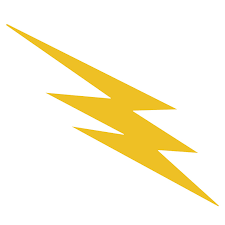 If you’re not familiar with E Train, the preteen literacy advocate, booktuber and podcast host, now’s your chance! Six months shy of his thirteenth birthday, this soon-to-be Bar Mitzvah boy has been reviewing books, interviewing authors, and spreading kindness—virtually and in-person—since the age of nine and a half (!). Today, it is my absolute pleasure to welcome E Train (aka Ethan) to the Mixed-Up Files.
If you’re not familiar with E Train, the preteen literacy advocate, booktuber and podcast host, now’s your chance! Six months shy of his thirteenth birthday, this soon-to-be Bar Mitzvah boy has been reviewing books, interviewing authors, and spreading kindness—virtually and in-person—since the age of nine and a half (!). Today, it is my absolute pleasure to welcome E Train (aka Ethan) to the Mixed-Up Files.
Interview with E Train
MR: Thanks so much for joining us today, Ethan. It’s an honor to have you here!
Ethan: Thank you so much for having me, Melissa. I’ve loved reading your interviews with fabulous authors and members of the book world, so it’s a great honor to join you!
The Boy Behind the Mic

MR: What inspired you to host a podcast? How old were you when you started, and what were you hoping to achieve?
Ethan: I started my podcast at age eleven, after taking an online podcasting class on Outschool, an online virtual classroom. I’d already created a YouTube channel and was sharing videos, but I thought a podcast might be a fun and convenient way to share book reviews. My mom, dad and I wrote down different podcast names we liked and then voted. “E Train Talks” won! I really had no aspirations in mind; I let the journey take me. I did have one goal, though—to highlight the stories I liked, and to hopefully inspire others to read middle-grade books.
My Day is Booked

MR: How do you select which books and authors to feature on your podcast? There are so many to choose from!
Ethan: That’s a great question, Melissa! Originally, I said yes to almost everyone who asked to be on my podcast. At the time, I didn’t focus on the book genre, or if I’d heard of the author. I was just so excited and happy that writers were interested in talking to me, and sharing their writing journeys. Plus, I was homeschooled at the time, and I had quite a bit of time on my hands.
As my podcast grew, so did the number of people asking to be interviewed, and I learned quickly that there was no way to say yes to everyone—so I’ve had to cut back a bit. I was about to end homeschooling and start middle school too, so I knew I’d have to cut back on the number of monthly interviews I was hosting, which was around four to six interviews per month. As much as I’d like to keep that number, each interview requires reading and reviewing at least one book, as well as preparing interview questions, so it can be time consuming!
Now that I’m in middle school, with lots of homework, I try to host an average of two interviewees per month—give or take. Choosing who to talk to isn’t easy, so I try to base it on how much I enjoyed the book, or if there’s an important and compelling message the author is trying to share in their story.
Author Extravaganza!

Ethan: I get asked this a lot, and it’s always the most difficult question to answer, but I looked through my YouTube channel and podcast and, as of now, I’ve interviewed 90 authors, literacy advocates, kindness heroes, and more. It feels like every guest on my show becomes my new favorite, or most memorable, because every single person has something amazing to contribute, and honestly, it’s just too hard to choose one. But I’ll share several interviews that I’ll always keep with me.
The first is my talk with Stuart Gibbs. I’ve loved his books for a very long time, and talking to him was monumental. I remember I had a terrible cold that day, but there was no way I was canceling my talk with a book hero! Next is Gidon Lev, a Holocaust survivor who always focuses on the joy and hope in life. I’d never met or talked with a survivor before, so it was a life-changing experience. Oh! and, my interview with the legendary James Ponti was one of my most memorable podcasts as well. James is an unbelievably kind person, and he’s so knowledgeable and interesting to talk to. Three more meaningful interviews I had were with authors, Dan Gutman, Torrey Maldonado and Lisa Fipps—all incredible people who left a book print on my heart!
And, finally, another memorable experience was interviewing the authors who contributed to the MG anthology, Coming of Age: 13 B’Nai Mitzvah Stories. I’m not just saying that because I’m here with you, Melissa, but as an upcoming Bar Mitzvah boy, reading about the characters’ experiences, and talking with the authors who wrote the stories, gave me insight into some things I can expect.
Advocating for Literacy

MR: In addition to interviewing authors and hosting your podcast, you are a self-described literacy advocate. Can you tell us more about the work you do?
Ethan: When I started my podcast and YouTube channel, I had no idea how many kids in the world don’t have access to books. Even in my own city there are lots of kids who don’t have many—or any—books of their own. I was shocked by the numbers, and I only learned this after listening to Dr. Molly Ness, an incredible advocate for literacy.
When I found out that there were millions of kids without access to books, I knew I wanted to do something, so I started book drives and was so happy when people started to send books! So many authors and book lovers have contributed to my book drive. Two people who’ve really supported my book-drive efforts are the amazing teacher-librarian extraordinaire, Elizabeth Blye, and the incredibly generous and wonderful Jennifer Frances, Founder and CEO of Bess the Book Bus.
Because of the many generous book donations, I’ve also been able to visit and talk with kids at local Title One schools in my community and hand deliver books to entire classrooms. Last year I partnered with Book Drop, which is run by author Jennifer Nielsen, and I visited a local school with my book hero, author Stuart Gibbs, to talk about the joy of reading. We shared books with every student in the school! I can’t tell you how wonderful it feels to talk to kids about books, and then see the smiles on the kids’ faces when they get to take a book home!
Teen Readers’ Choice Awards

MR: Along these lines, you were chosen as the 2023 Teen Readers’ Choice Awards Book Hero. What was it like to win such a prestigious award, especially at the age of 12?
Ethan: When I heard the news, I literally leapt for joy! I think it was the best news I’d ever heard. So, the Teen Reader’s Choice Award is part of Teen Author Boot Camp, and they hosted a beautiful and fun awards gala for authors and teen writers. What made the experience even more special was that the award was presented to me by another book hero of mine, the wonderful author Jennifer Nielsen. Talk about making memories! I’m so unbelievably grateful for being recognized and awarded for my literacy work. The entire experience was inspiring and a night I will never forget.
Bar Mitzvah Boy

MR: Let’s turn to your Bar Mitzvah, which will take place on January 6th. (Here’s Ethan, pictured with Rabbi Herman). Can you tell us about your Bar Mitzvah Project? Spoiler alert: It involves books 🙂 Also, what does becoming a Bar Mitzvah mean to you?
Ethan:
My Mitzvah Project is one I’m extremely proud of. Continuing with my theme of book drives and getting stories into the hands of kids who need them, I’ve started an Amazon Wishlist and launched a GoFundMe, where people can donate money or books to help me continue sharing stories with kids in need. Every dollar goes directly to ordering books for kids in need. This project goes hand-in-hand with my Torah portion of helping those in need, when Moses was called upon by God to lead the Israelites to the Promised Land. Along with my book drives, I’m also spotlighting Jewish-themed books, as well as Jewish authors every month on social media and on my Bar Mitzvah Project Webpage.
(For more on Ethan’s Bar Mitzvah project, click here. And check out Coming of Age: 13 B’Nai Mitzvah Stories, edited by MUF’s very own Jonathan Rosen, with a story by MUF contributor Melissa Roske.)
Ethan for President (of Seventh Grade)

MR: Rumor has it that you won the election for president of your seventh-grade class. Congratulations! Can you tell us about the campaign? What will your responsibilities involve as president?
Ethan: Thanks! I’m excited about being seventh-grade president. I ran against two other candidates. Campaigning was a lot of fun. With my mom’s help, we made posters, stickers, and buttons to help spread the world. On top of campaigning every day for two weeks, we filmed and shared a campaign video, which I made with my dad. I also created a TikTok campaign page, and my mom and I made a couple of extra campaign videos to share.
To run for office, I had to get two teacher recommendations as well as have a good GPA. It was such an exciting day when I heard I’d won the election! I haven’t been told all my responsibilities yet, but I know I’ll be helping to organize and attend school events as well as learn new leadership and community-outreach skills. I’m hoping to add some kindness and book- themed events to the calendar too, if possible!
MR: How do you balance your responsibilities as a student, podcaster, literacy advocate, and soon-to-be Bar Mitzvah boy? It can’t be easy.
Ethan: You’re right, Melissa. It’s not always easy to balance things. On top of being a middle-schooler, I’m on a school quiz bowl team, and I’m in an IB program, so my studies can be very rigorous at times. Next year will be even tougher, so I’ve been trying to find ways to balance everything. One thing that’s helped is cutting my interviews from four to six per month to two or three. Also, with my Bar Mitzvah training coming up, I’m going to have to learn how to manage my time. Now that summer vacation is here, I’m hoping to get as much as possible accomplished before seventh grade starts and my Bar Mitzvah training gets more difficult.
MR: How do you spend your free time, Ethan? I know you love basketball and playing the ukulele…
Ethan: I like to play video games, watch funny videos, hang out with friends, read, play piano and sing, play quiz bowl, and yes—play as much basketball as possible. This summer, for instance, I’m playing in a basketball league. I also love spending time with my family, especially my cousins. As for the ukulele, apparently I went through a big ukulele phase when I was two and three years old. I thought I played pretty well, but I’m not sure everyone listening would agree!
Ethan Tells All

MR: Is there anything I haven’t asked that you’d like Mixed-Up Files readers to know about you? Now’s your chance!
Ethan: I host a monthly book-review segment on Good Day, Sacramento, where I review middle-grade books as well as picture books and a little YA. I’ve been at it since September 2022. I’m also a kid reporter for the Sacramento Kings, where I’ve had the amazing opportunity to interview the players, and even appeared on national television, TNT.
I’m often asked when I started reading, and my mom tells me I asked to learn when I was two-and-a-half years old. I was reading chapter books by the time I was three and a half. I’ve also had a passion for trivia and history for as long as I can remember! Lastly, I’m a Giving Tuesday Spark Leader. As a Spark Leader, my goal is to spread as much kindness through literacy as possible, especially around Giving Tuesday Spark, in November.
Lightning Round

MR: And finally, no MUF interview is complete without a lightning round, so…
Preferred snack?
Cheerios with milk.

Favorite subject in school?
Probably History or World Language (we get to learn French, Chinese, or Spanish at my school).
Favorite book? (This is a tough one, I know… 🙂)
Wow, that is a toughie! Probably Starfish by Lisa Fipps. But I love so many!
Zombie apocalypse: Yea or nay?
Nay.
Superpower?
Something discreet, like knowing exactly what to say in all situations. It can come in handy!
Favorite place on earth?
Hawaii is so beautiful. I also love Hotel Del Coronado, in San Diego.

If you were stranded on a desert island with only three things, what would they be?
My favorite book, a journal, and a water purifier.
MR: Thank you for chatting with us, Ethan. It was a pleasure, and I’m sure MUF readers will agree!
Ethan: Thank you so much for having me, Melissa! This has been so fun, and an honor to talk with you! I can’t wait for what’s to come in my book journey, and to see who you’re interviewing next on MUF! Bye!
About E Train

E Train is a 12-year-old award-winning literacy advocate, booktuber & podcast host, on an amazing adventure reviewing books and interviewing authors, book enthusiasts and kindness heroes. He is also visiting schools across the country (virtually & in-person). Find E on his website and YouTube Channel, and follow him on Twitter and Instagram. You may find his podcasts here. (Please note: E’s mom approves all of his tweets, posts, and content.)










